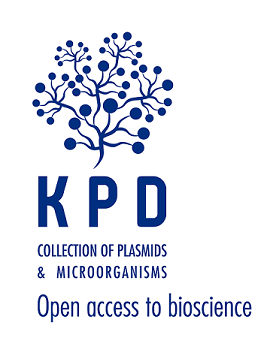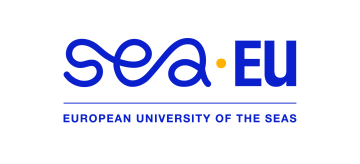
Collection of Plasmids and Microorganisms (KPD) is a newly established resource at the Faculty of Biology dedicated to collecting and long-term preservation of plasmids and microorganisms, aiming to foster advanced collection management of biological material and consolidate microbial resources previously dispersed among several university labs.
Our mission is to support bioscience by providing open access to high-quality microbial resources.
The scope of KPD includes:
- multi-drug resistant clinical isolates
- newly isolated environmental strains
- microorganisms with potential application in molecular biology, biotechnology and bioengineering, e.g. natural bacterial strains carrying restriction-modification systems
- laboratory strains and plasmid vectors used as tools in molecular biology and genetic engineering
- E. coli mutants and new genetic constructs used for research on the regulation of cellular processes and stress response in prokaryotes
- microbial strains for teaching purposes
- natural plasmids
- cloning/ overproduction vectors
which are available for researchers both from the industry and academia.
Depositing biological material is free of charge. KPD accepts biological material, which can be handled under containment level 1 and 2.
KPD operates in compliance with the international guidelines, including World Federation for Culture Collection (WFCC) guidelines for culture collections, the Common Access to Biotechnology Resources Information (CABRI) Guidelines and Organisation for Economic Co-operation and Development (OECD) Best Practice Guidelines for Biological Resource Centers.
KPD collection is registered at the Word Data Center for Microorganisms, WDCM under the number WDCM1084 and is a member of the European Culture Collections' Organisation (ECCO). KPD has also been involved in establishing The Microbial Resource Research Infrastructure - MIRRI, the European distributed Research Infrastructure for the preservation, systematic investigation, provision and valorisation of microbial resources and biodiversity.
MALDI TOF mass spectrometry for bacterial identification (MALDI Biotyper) | microbial phenotype characterisation (Omnilog) | DNA purification | droplet digital PCR (ddPCR) | protein characterisation using (nanoDSF & MST, Nanotemper)
Plotka, M., Kaczorowska, A.K., Stefanska, A., Morzywolek, A., Fridjonsson, O.H., Dunin-Horkawicz, S., Kozlowski, L., Hreggvidsson, G.O., Kristjansson, J.K., Dabrowski, S., Bujnicki, J.M. and Kaczorowski, T.: Novel highly thermostable endolysin from Thermus scotoductus MAT2119 bacteriophage Ph2119 with amino-acid sequence similarity to eukaryotic peptidoglycan recognition proteins. Applied and Environmental Microbiology 80 (2014) 886-895
Plotka, M., Sancho-Vaello, E., Dorawa, S., Kaczorowska, A.K., Kozlowski, L.P., Kaczorowski, T. and Zeth, K. Structure and function of the Ts2631 endolysin of Thermus scotoductus phage vB_Tsc2631 with unique N-terminal extension used for peptidolycan binding. Scientific Reports 9 (2019) 1261.
Plotka, M., Kapusta, M., Dorawa, S., Kaczorowska, A.K., and Kaczorowski, T.: Ts2631 endolysin from the extremophilic Thermus scotoductus bacteriophage vB_Tsc2631 as an antimicrobial agent against Gram-negative multidrug-resistant bacteria. Viruses 11 (2019) 657
